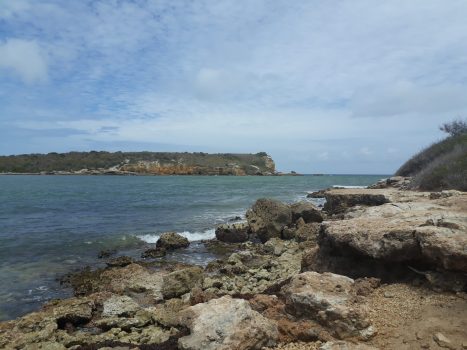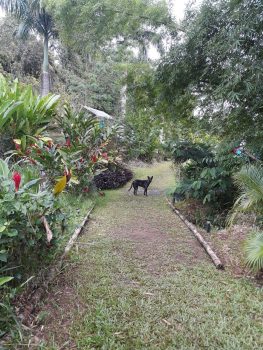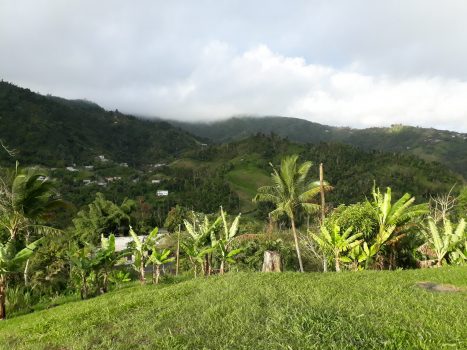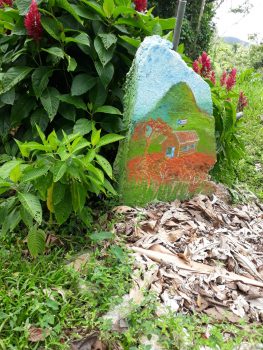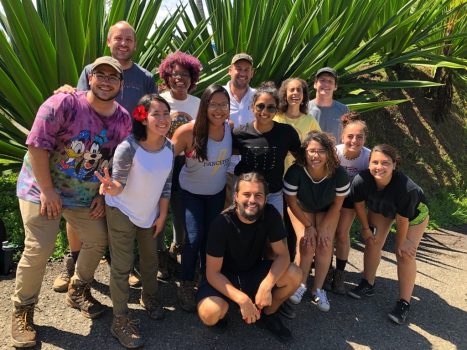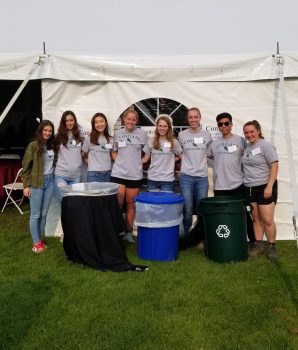-Jailekha Zutshi ’21
A week after the spring semester ended, I left Hamilton for Puerto Rico on a service learning trip organized in conjunction with the COVE. Ten of us had taken Core Puerto Rico or Core Latin America in the last three years with Professor Barreto, who accompanied us along with Professor Humphrey. Altogether, we spent nine days in Puerto Rico – the first week at Plenitud PR in Las Marías, and an afternoon in Mayagüez interacting with farmers, artists, and activists, The last two days were in Caguas with Tara Rodriguez Besosa, a queer rural activist, largely on her farm. At Plenitud, our mornings were spent working on the farms, and the afternoons participating in cultural activities, attending workshops, or doing household tasks like shelling lentils, processing spices, or helping with meal prep. The vast majority of the produce we worked with, and a large part of what we ate, was grown on the farm itself.
Working on the farm, and listening to Tara and folx in Mayagüez, we learned that farmers in rural areas who worked together to create contingency plans before Hurricane Maria hit were able to minimize the long-term impact of the storm. Creating environmentally and economically sustainable methods of agriculture coincided with ensuring self-sufficiency as folx living in a colony in the aftermath of a natural disaster. The agricultural methods involve growing several plants together so that they naturally return nutrients to the soil, unlike monocrop agriculture which depletes naturally occurring nutrients from the earth. Growing their own food, exchanging services, and creating art to sustain their social networks meant that in a lot of cases, they were able to distribute food and help survivors of the hurricane well before the administration could reach the western part of the island. Thus, farms were part of the movement to create and sustain communities after the trauma of Maria. As a result, farms like the ones we visited serve as a model example of environmental, economic, and social sustainability.
In the urban sprawl of New Delhi, India, where I grew up, we were taught that urban areas were more developed than their rural counterparts. This trip made me question this claim and reevaluate the meaning of ‘development.’ Development without sustainability inevitably leads to vulnerable groups being adversely impacted by climate change, capitalism, and colonialism. Reimagining development as sustainable development, where folx could fend for themselves and others with a degree of agency I could not in the city, I thought through new ways to link self reliance and agriculture, climate change and colonialism, and food and resistance. I will always carry these lessons on the most authentic form of sustainability I have seen, eaten, heard, and touched, and will use these to advocate for a more decolonized, sustainable, and equitable approach to addressing climate change.


